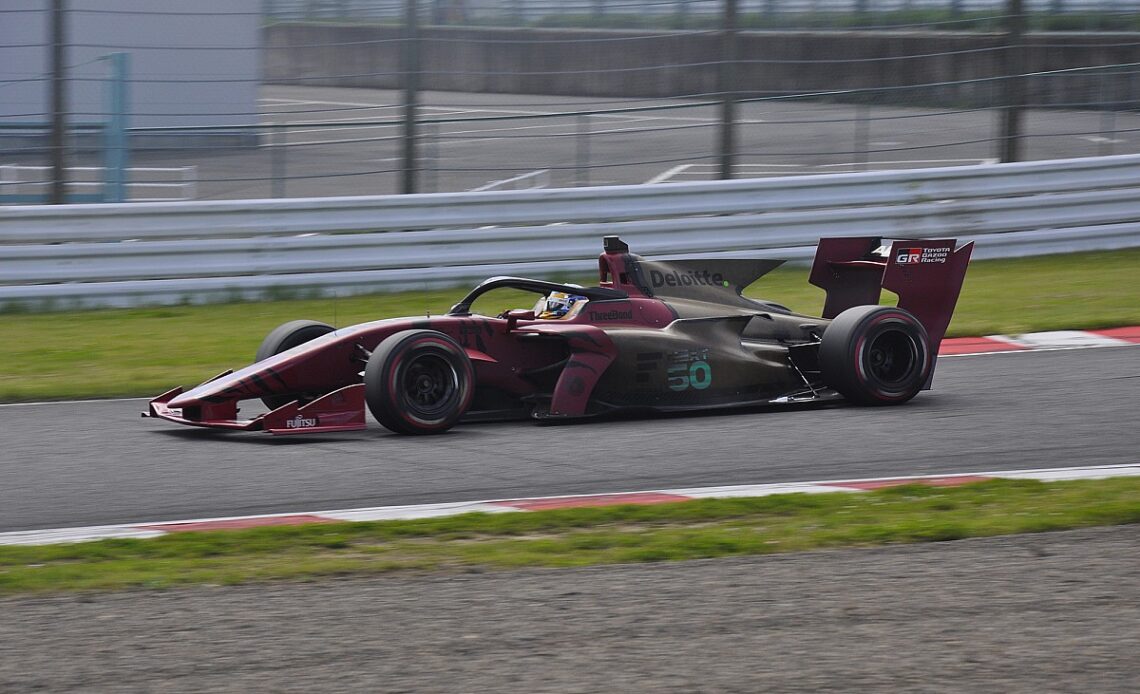Japan’s premier single-seater category announced a major development programme for its SF19 chassis ahead of the start of the 2022 season as it bids to reduce its carbon footprint and improve the current car’s raceability.
Read Also:
After a first test at Fuji Speedway last month in which carbon-neutral fuel and Yokohama tyres featuring a proportion of reusable materials were tried out, sidepods and engine covers made from natural hemp fibre – supplied by Swiss company Bcomp – made their on-track debut on Monday.
As at Fuji, Hiroaki Ishiura and Koudai Tsukakoshi were on hand to drive the two development cars for the two-day test.
However, amid concerns that purely hemp-based panels may not be strong enough, a ‘hybrid’ solution featuring both hemp and carbon fibre was also put through its paces at Suzuka.
Super Formula’s next-gen project technical director Yoji Nagai suggested that the hybrid version, featuring around 70 percent Bcomp hemp fibre, is the more likely option for implementation in the championship in 2023.
“There are three main weaknesses when it comes to ‘Bcomp’,” said ex-Toyota F1 man Nagai. “It’s not as strong as carbon fibre, it’s less heat resistant, and the fibres themselves can absorb water easily.
“So this time, as well as body panels made entirely from hemp, we brought along a ‘hybrid’ version featuring a three-layer construction designed to address those points.
“My personal opinion is that it’s difficult with ‘Bcomp’ alone, because the strength of the hemp itself is limited. Of course, 100 percent ‘Bcomp’ would be the ideal solution for the future, but this hybrid version is made with about 70 percent carbon-neutral materials.
“Rather than having zero percent thought it was better to use that as a starting point, and increase the percentage later.”
Nagai added that while the number of panels on the car that can be made from 100 percent hemp fibre is limited, figuring out what proportion of carbon-neutral…
Click Here to Read the Full Original Article at Motorsport.com – All – Stories…

